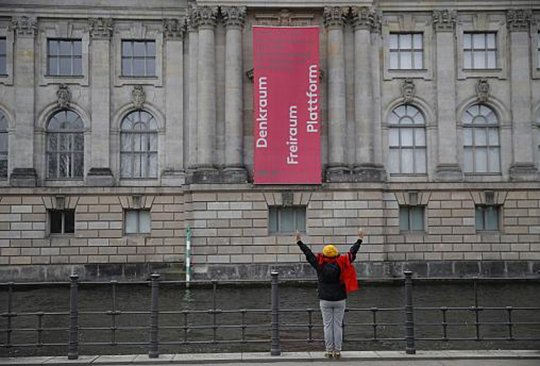As COVID-19 lockdowns continue to be extended across Europe, the continent’s cities are looking alien to art lovers.
Amid social distancing, cultural landmarks have all but become off-limits. With museums, galleries, theatres, and concert halls all closed and wold be audiences told to stay home, it’s a challenging time for those wanting to get their cultural “fix”.
Leading voices in the arts are nevertheless saying it’s more important than ever for people to have their creative spirits lifted.
“It is absolutely vital that we still have easy access to culture,” said Hartwig Fischer, director of the British Museum.
“We have the means to engage in history, the cultures of the past, the cultures of the present. And if you talk about the British Museum, talk about how people over the past two million years, have tackled big challenges, health challenges, and other challenges and come out on top of it.”
Cultural institutions across Europe are opening up online to help fill the void left by physical lockdowns. In Stockholm, the Moderna Museet Modern Art Museum is offering “sofa tours” for online visitors.
“So far the response has been really positive, both nationally and internationally, there are people that comment in the tours that say that they are in quarantine and feel a bit lonely, and this is the highlight of the day, people who work from home and think it’s nice to have a break in the middle of the day, teachers who want to recommend their students to watch these tours,” said Miriam Ekwurtzel, the museum’s digital marketing manager.
The institution’s curator, Ulf Eriksson, said the level of intrigue took him by surprise.
“This was my first ever online guided tour, and I think I never had so many people daring to ask those questions, and there are so many questions coming in. People are so thankful for having something new to enter the monotony of everyday life in quarantine,” he said.
Lessons from the past
While virtual tours maybe a way to help break up the day working from home, they also provide a vital lesson in helping audiences manage feelings of isolation and loneliness.
“Crises, throughout history, have lead to new developments,” said Fischer. “There is an aspect in culture that it is not only very rewarding and it makes you happy to engage with art and culture, it enriches your life, it enriches your experience.
“It also helps you to become a more complete person and informs the way we interact with others.
“But on top of that, we can gain encouragement to see how people in the past, or people from other parts of the world, have navigated these very difficult, trying moments.”


